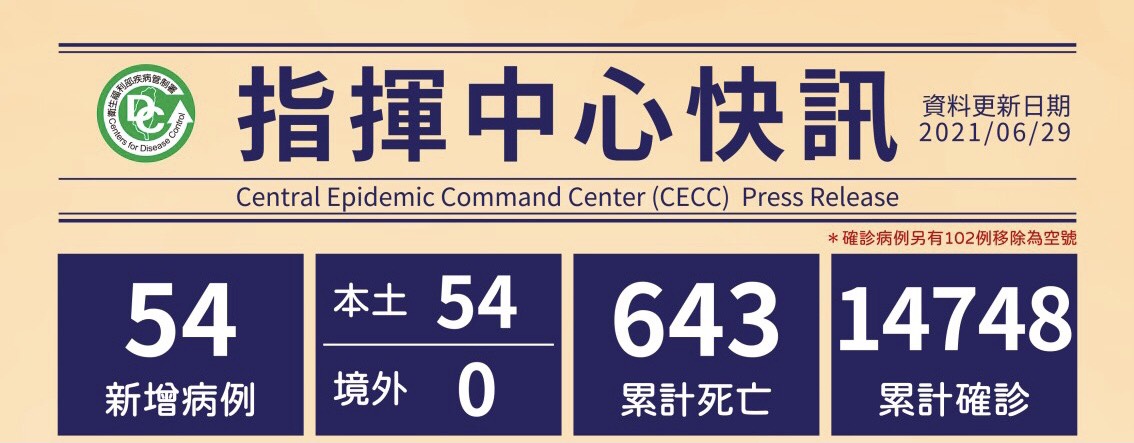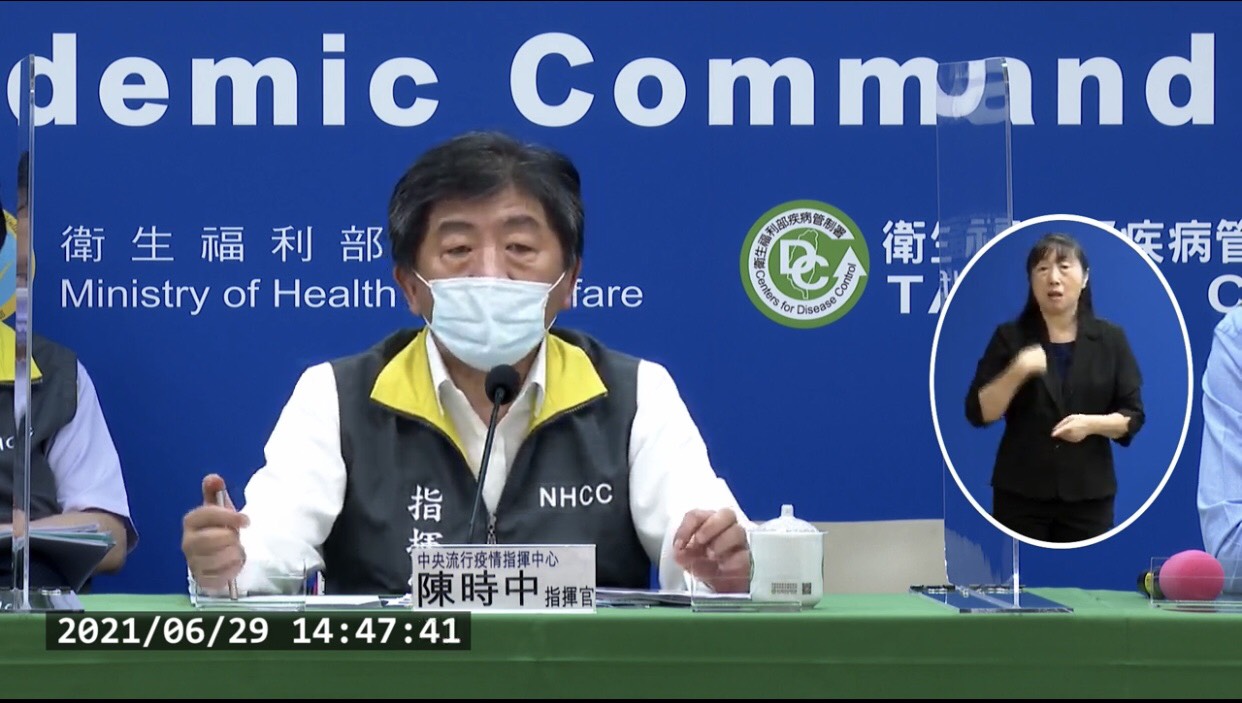On June 29, the Central Epidemic Command Center (CECC) announced 54 new confirmed cases of coronavirus disease 2019 (COVID-19) in Taiwan. All 54 cases are indigenous. The CECC also announced eight deaths today.
 54 new local cases were confirmed on June 29. (Photo / Provided by the CDC)
54 new local cases were confirmed on June 29. (Photo / Provided by the CDC)
The CECC pointed out that of the 54 indigenous cases, 19 are men and the other 35 are women, aged between under 5 to 89 years old. They began to suffer the onset of symptoms between June 16 and June 28, 2021. Regarding those indigenous cases, New Taipei City reported most cases, at 22, and Taipei City had the second highest number, at 20. Taoyuan City and Hsinchu County reported 4 cases each; Changhua County reported 2 cases, and Keelung City and Pingtung County reported 1 case each.
Read more: US’s Frameline Film Festival Featuring Taiwan’s Leap in LGBTQ Visibility
Regarding the eight deaths announced today, they were five men and three women between 60 and 89 years old.
The CECC reported that a total of 1,311,961 cases related to COVID-19 have been reported in Taiwan among which COVID-19 has been ruled out in 1,295,813. Of these reported cases, infection with COVID-19 was laboratory-confirmed in 14,748 cases. Of the 14,748 confirmed cases, 1,170 are imported; 13,525 are indigenous; 36 are naval crew members aboard the Panshi fast combat support ship; 2 are infections on an aircraft; 1 case has unknown sources of infection; 14 cases' sources of infection are being investigated, and a cumulative total of 102 cases have been removed from the list of confirmed cases. There have been a cumulative total of 643 COVID-19 deaths since 2020; of the 643 deaths, 635 are indigenous cases and the other 8 are imported.
Read more: Fines of up to NT$ 750,000 for Employing Migrant Workers from Illegal Human Resource Agencies
The CECC reminds the public to pay attention to personal hygiene such as washing your hands regularly, wearing your masks, reducing unnecessary outings, and avoiding crowded areas especially those that are considered to be high-risk. Cooperating and following these epidemic prevention guidelines will keep the land and its people safe.







